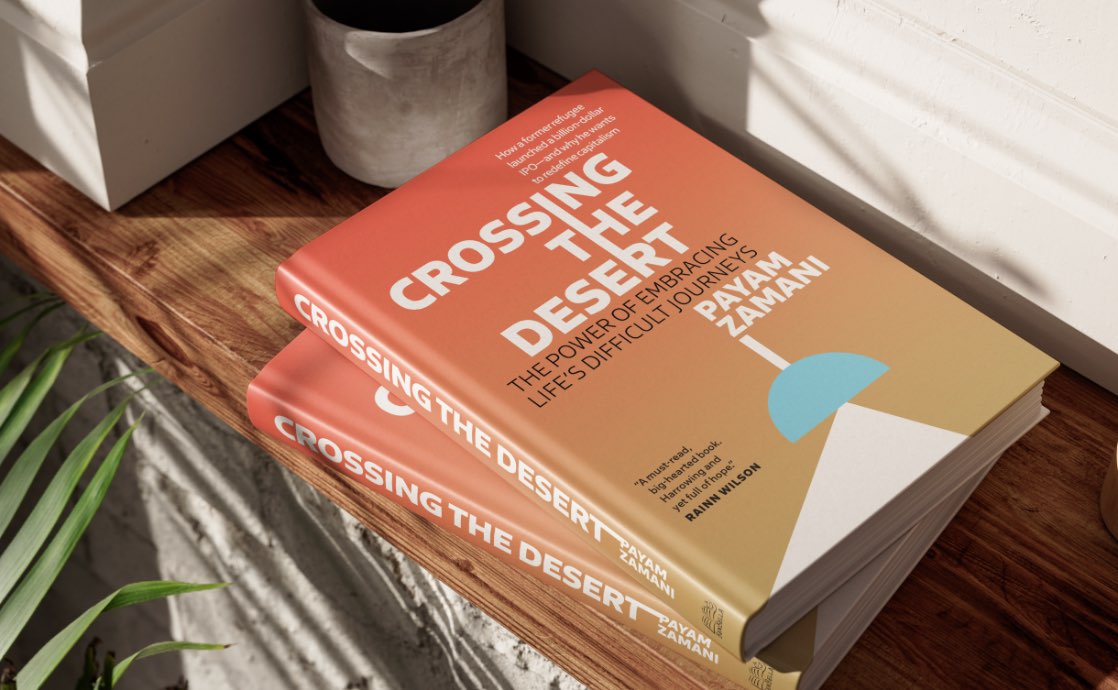In contemporary discourse surrounding personal narratives and autobiographical works, few texts resonate with as much profundity as “Crossing the Desert: The Autobiography of Payam Zamani.” This compelling narrative transcends mere biographical recounting; it delves into the quintessential human experience of navigating adversity, transformation, and spiritual awakening. The synthesis of personal journey and Bahá’í teachings within this autobiography illuminates the complexities of existence, thereby captivating its readers on multiple levels. This analysis will explore the thematic essence of the autobiography, the core teachings of the Bahá’í Faith it embodies, and the resultant fascination it incites in its audience.
The allure of Payam Zamani’s story is inextricably linked to its exposition of resilience amidst tribulation. In narratives that pivot on hardship, readers often find reflections of their struggles and, subsequently, their own potential for triumph. Zamani does not shy away from detailing the myriad challenges he encountered; rather, he embraces them as essential components of his transformative journey. This alignment with the Bahá’í perspective, which esteems adversity as a crucible for spiritual development, is palpable throughout the text. The autobiographical journey becomes not merely a recounting of events, but a pedagogical tool that illustrates the significance of perseverance and faith.
Equally compelling is the exploration of identity within the work. Zamani’s experiences and reflections touch on the intricacies of cultural identity, particularly in the context of his Bahá’í upbringing. The Bahá’í teachings stress the importance of unity among diverse peoples, and Zamani’s navigation of his multifaceted identity exemplifies this principle. As he traverses through various cultural landscapes, he engages with themes such as belonging, alienation, and the quest for self-actualization. This exploration of identity resonates profoundly with readers who have grappled with their own sense of place in a multifarious world.
The narrative structure of “Crossing the Desert” employs vignettes from Zamani’s life that serve not merely as anecdotes but as profound philosophical reflections. Each section unfolds like a tapestry, weaving together personal experiences that are enriched by the universal themes of love, loss, and redemption. As the readers traverse these episodes, they inevitably find themselves drawn into a contemplative dialogue regarding their own life choices. Zamani’s contemplations, underpinned by Bahá’í principles, encourage readers to ponder life’s intricate designs, thus prompting introspection.
Furthermore, the juxtaposition of struggle and the search for meaning resonates deeply within the framework of Bahá’í philosophy. The teachings espouse a rich spiritual narrative that is contingent upon both subjective experience and collective consciousness. This duality is poignantly mirrored in Zamani’s experiences that oscillate between personal tribulation and broader societal challenges. He candidly addresses the struggles faced not just by himself but also by the community at large, underscoring the interconnectedness of individual and collective journeys.
The text also engages with the concept of spiritual sustenance. For many, the metaphorical desert represents a state of barrenness—be it emotional, spiritual, or existential. In this context, Zamani’s journey serves as both a challenge and an invitation to engage with one’s own ‘desert.’ The Bahá’í teachings advocate for the cultivation of virtues such as patience, perseverance, and trust in divine providence; thus, the desert becomes a critical space for spiritual growth and revelation. Through his narrative, Zamani illuminates how the desolation of experiences can paradoxically lead to the blossoming of understanding and insight.
Moreover, the themes of interconnectedness and compassion emerge as fundamental pillars of the narrative. Zamani articulates how relationships—whether familial, communal, or spiritual—serve as lifelines during tumultuous times. The Bahá’í Faith promotes the idea that the well-being of the individual is intricately linked to the well-being of the community. This principle is vividly illustrated through Zamani’s engagements with diverse individuals and communities throughout his life, showcasing a spectrum of shared struggles and triumphs. The multidimensionality of these relationships highlights the importance of empathy and collective support in navigating life’s challenges.
The broader implications of Zamani’s story extend beyond personal reflection; they serve as a clarion call for social action. The narrative compels readers to examine the larger societal structures that contribute to individual suffering and disenfranchisement. In the spirit of Bahá’í teachings, Zamani advocates for justice, equity, and the necessity of working towards a more harmonious society. His call to action is subtly woven into his experiences, challenging readers to not only reflect on their lives but also actively engage in the betterment of their communities.
Ultimately, the fascination with “Crossing the Desert” lies in its ability to resonate on both personal and universal levels. The narrative serves as a mirror reflecting the complexities of human existence—its trials, connections, and the indomitable spirit of resilience. By thoughtfully intertwining elements of Bahá’í teachings with a compelling autobiographical account, Payam Zamani offers readers a rich tapestry of insights that transcend cultural and geographical boundaries. The autobiography is not merely a recounting of one man’s journey through adversity but an invitation for all to embark on their unique paths through the deserts of life, propelled by hope, faith, and an unwavering commitment to improving the human condition.
